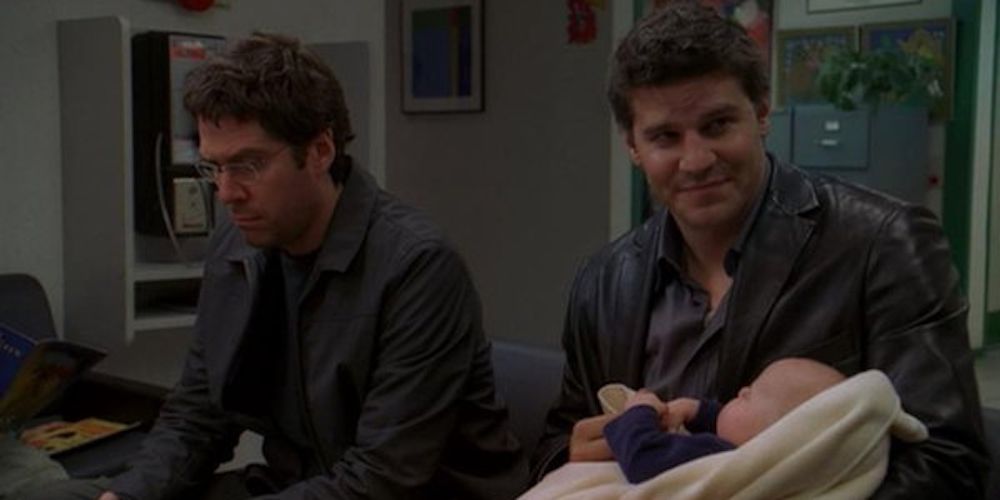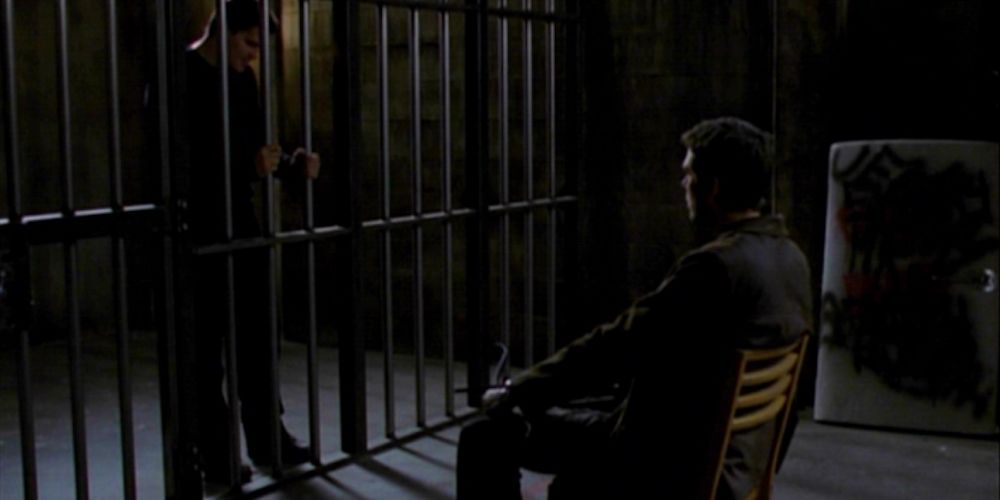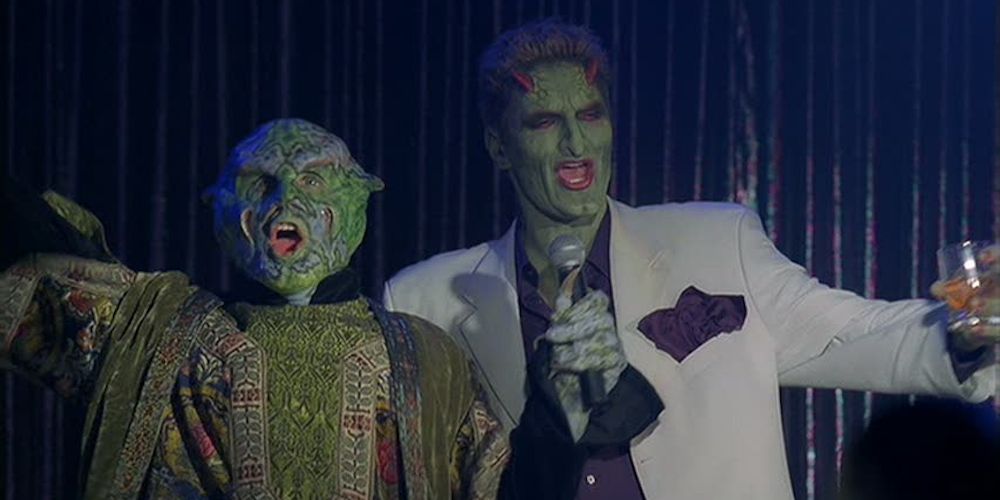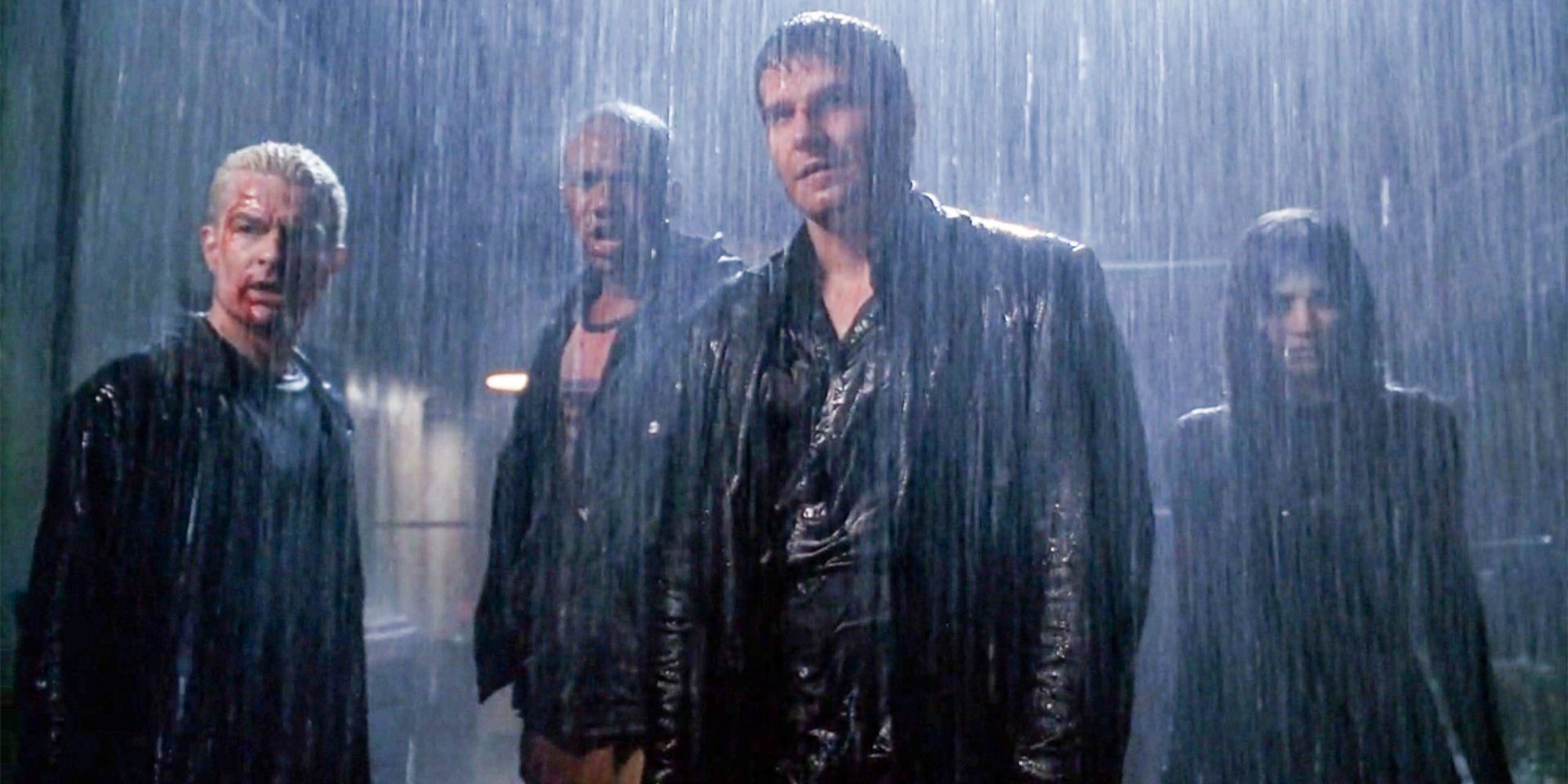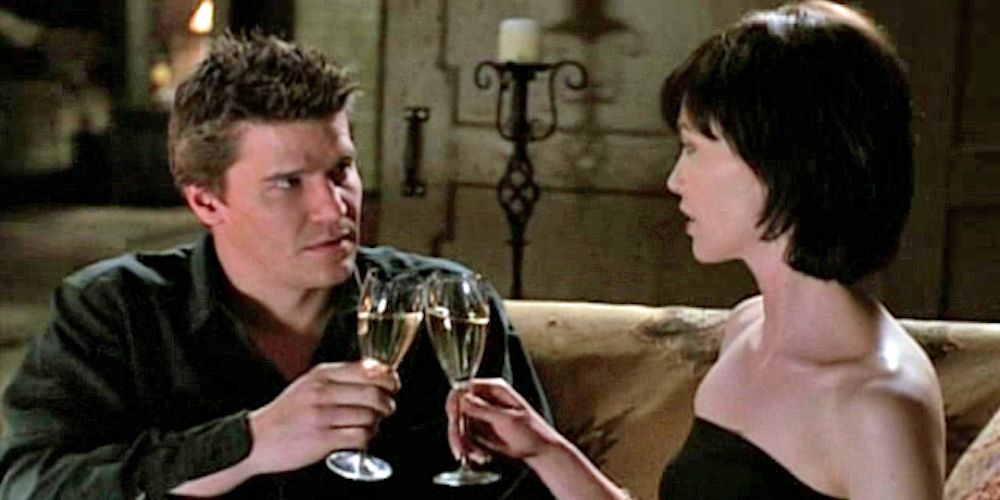Buffy the Vampire Slayer is regularly held up as a pivotal piece of genre programming on television. While it helped open many doors for future content, its spin-off series, Angel, attempts even loftier goals. There’s been a major boom of supernatural content on television, but vampires are a type of monster that are perennially popular and have been depicted in many unique manners.
The success of Buffy for the WB was undeniable and so it’s only natural that the network pursued a more adult spin-off series that focuses on Buffy’s central vampire heartthrob, David Boreanaz’s Angel. Angel routinely gets dismissed as a more masculine and brooding Buffy, but it slowly finds its voice and grows into an impressive series in its own right. All five seasons of Angel deliver exceptional storytelling, but some seasons are held in higher regard than others.
5 Season 3 Fractures The Group & Introduces A Dangerous Prophecy (7.77)
Angel’s third season is far from inferior, but it’s an important transitory season that sometimes gets lost in important setup and character development. After the show’s first two seasons help establish the series’ tone, Angel season three is able to let its characters loose a little more. There’s a new level of freedom in this season as characters like Fred, Gunn, and Lorne begin to come into their own. Some of the most rewarding material in season three involves Holtz, a vengeful presence from Angel’s past, as well as a foreboding prophecy that surrounds Angel’s seemingly impossible offspring.
This fabricated prophecy leads to a schism between Wesley and the rest of Angel Investigations that results in the most fulfilling character development of the entire series. Wesley’s segregation and Angel’s irrational mental state push Angel to exciting, controversial territory that the previous seasons are too cautious to explore. Further developments, like the growing influence of Wolfram & Hart, also help Angel grow into the series that it’s supposed to be.
4 Angel Season 4 Is A Masterpiece Of Serialized Storytelling That Brings Back Angelus (7.95)
Season four of Angel has become one of the series’ most contentious years, largely because of its egregious plotting that pairs Cordelia together with Angel’s grown up son, Connor. This irrational development and Cordelia’s gradual character assassination are definitely low points for Angel, but there’s so much strong material from season four that it’s impossible to completely write it off.
A lot of Angel’s fourth season plays with its separation of Angel and Cordelia, the latter of which finds herself at a divine intervention. Some of the character beats feel clunky and the ending arc with Jasmine feels rushed, but the middle stretch of episodes that feature an apocalypse in full swing are the series at its finest.
Season four finally reawakens Angelus and doesn’t squander the opportunity, but it also goes for broke with how it ropes Buffy’s Willow and Faith into its danger. Angelus and Faith are both sublime here, but Wesley’s evolution into just as intimidating of a threat is extremely satisfying. The playful episode, “Spin the Bottle,” also remains a series highlight before danger consumes the characters.
3 Season 2 Turns To Angel’s Past & Has Him Reckon With His Many Sins (8.42)
Angel’s second season feels like a major step up from its freshman year, if only in terms of how the series has a better understanding of what it wants to be. Now that Angel has made its tone and agenda clear, season two really pulls back the layers on Angel and examines if this vampire with a soul deserves to be the one that “helps the helpless.” Drusilla and Darla both return to torment Angel and the malevolent supernatural law firm, Wolfram & Hart, properly emerge as the series’ main antagonists.
Angel season two pushes its titular character to unprecedented darkness and temporarily removes his support staff while he struggles to find himself.
Despite the season’s dark energy, there are still repeated glimpses of levity, such as the introduction of the clairvoyant demon, Lorne, and his unconventionally musical approach to reading his subjects. Other integral Angel characters, like Fred, make their debut in season two, as well as returns from Buffy favorites, like Faith and Harmony.
2 Angel’s Season 5 Pushes Its Characters Out Of Their Comfort Zones For Big Success (8.63)
It’s rare for a series to end on its high point, but Angel’s fifth and final season is such a breath of fresh air that feels like it could fuel another five seasons of storytelling. Season five features a radical change when Angel and friends leave the comfort of the Hyperion Hotel to run the evil organization that they’ve been butting heads with all series, Wolfram & Hart. Not only does Angel season five come with this fresh environment, but Spike from Buffy becomes a main character and a consistently entertaining foil for Angel.
There’s endless potential in the new dynamic that’s offered by Spike and Angel’s reunion, but Angel season five also engages in other drastic changes, like the death of Fred and her transition into the demon, Illyria. These character developments are fantastic, but Angel season five also features some of the strongest standalone stories from the show’s run. It’s no easy feat for a season to pull off some of the series’ greatest dramatic moments and also be able to tell an absurdist romp where Angel is turned into a puppet.
1 Season 1 Of Angel Sets The Framework For This Supernatural Noir (8.68)
Spin-offs are a risky venture and they can either surpass the acclaim of their originating source material or become forgotten as embarrassing misfires. Buffy the Vampire Slayer was still in its prime when its spin-off, Angel, started, yet the new series still managed to find its niche. Season one of Angel brings Angel, Cordelia, and eventually Wesley over from Buffy into the unrepentant city of Los Angeles. The start of Angel is primarily interested in episodic storytelling that establishes the darker and more detective-driven narratives that contrast from Buffy’s supernatural material.
The lack of a deeper serialized story does hurt Angel’s first season and there are definitely some growing pains as it figures out what works for it and what doesn’t. A reliance on crossovers with Buffy are appreciated, but they still hold back the series’ ability to evolve. Angel is incredibly confident in its debut year and arguably showcases a stronger selection of episodes than Buffy’s premiere season. Some may consider Angel season one to be unnecessary in retrospect, but the quality and energy in its individual episodes cannot be ignored.


